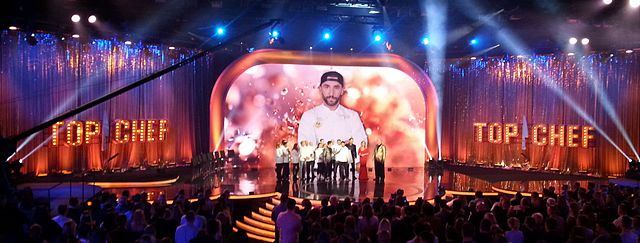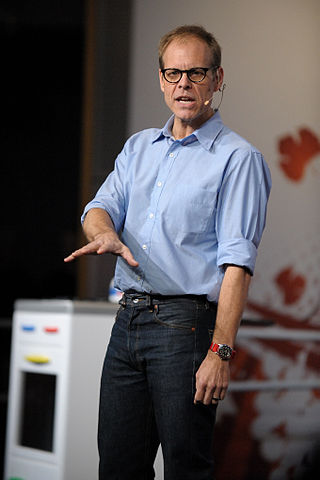Forgive me for starting with a lava-hot take, but I love food. Controversial, I know. Over the last couple years, however, my passion for snacks evolved into curiosity and marvel at anyone with culinary prowess. My specific type of nerdiness involves an unrelenting desire to learn as much as I possibly can about a topic. Cooking is no different for me. In college and short on money for equipment and ingredients, my hunger led me to the ultimate information buffet: the internet. Specifically, YouTube, where I became deeply submerged in what I will call the YouTube Food Industry.
To this day, I probably consume about 5 or more hours of food based videos on YouTube per week. Very easily, I can knock half of that out in one sitting. And I can proudly say that I’m a halfway decent home cook now. My teachers are the likes of Alton Brown, Matty Matheson, and the Bon Appetit test kitchen. But BA is in timeout, which we’ll talk about later. I reserve a special place on my plate for the dulcet and soothing tones of my favorite YouTube Food Industry titan, Andrew Rea, father of the “Babish Culinary Universe,” which was formerly know as “Binging with Babish.”

Serecki via Wikimedia Commons
When I reflect on my childhood, it’s interesting to me now that I never was curious about the kitchen. I had zero appetite to learn the basics of cooking. I would watch Food Network and Top Chef with my family, but I never saw myself becoming skilled at cooking. My mom cooks more than my dad, and my younger brother and I just showed up at the table. It’s not that I expected to be fed, I just had the privilege to not even think about it. There’s absolutely an aspect of this that’s influenced by the traditional idea of being a man. I figured I’d need to know how to cook a handful of meals to give my eventual wife a break. I figured I’d learn how to grill. But I assumed that mostly it wouldn’t be up to me. Pretty messed up, but I was 15.
Years later, after moving into a house off-campus in college, being off the meal plan, I learned extremely quickly that I needed to feed myself. This is a hurdle that many burgeoning adults encounter. I needed guidance, and as a man I needed to find that guidance my own, stubborn, round-about way. I needed to trick myself into learning how to cook with entertainment. Enter the YouTube Food Industry.
Now that I feel confident in the kitchen, I have a different perspective on what it took to get here. With my current mindset, it’s easy to see why hungry, broke, college Paul was drawn to Rea’s channel to learn. Rea works from an entertainment angle, and intentionally inserts comedy into his videos. As a young stand-up comic I found a connection to Rea. It was, and still is, an easy way for me to digest learning cooking. Another more obvious but less directly related path I unintentionally used was the simple fact that Rea is a regular guy. That is to say, one with no prior cooking training. Just a deep fascination with the possibilities of food. And I use the term “guy” intentionally, as I believe the fact that he’s a man also drew me in.
It might not be comfortable for me to admit, but it almost assuredly mattered to me subconsciously that a man, Andrew Rea, taught me about cooking. The picture is easy to paint. I never cooked as a kid, I learned cooking out of need, and I learned on my own time. In my own experience, I don’t know a lot of men who grew up super involved in their kitchen. I know men who, once being on their own, learned cooking as a means to survive. Finally, those same men I know who learned how to cook out of necessity, learned without structure and on their own volition. I can’t speak for Rea on the first two points, but he is proof that cooking is a learnable, accessible skill for regular people. I believe this matters a lot to your standard cis-man.
I’m comfortable enough in my own knowledge of gender roles, and gender presentation, to admit that I definitely have a male-slanted bias in the videos I choose to watch to learn how to cook. This isn’t malicious, or even intended. Simply a structure I have in my mind, imparted upon me by a sexist, heteronormative society. It is a structure I am working on altering to make it more equitable and unbiased. In this internal examination, however, I realized something. Why haven’t I heard about more women on YouTube with successful YouTube Food Industry channels? Furthermore, a good majority of YouTube chefs I follow and watch are white. What is at the root of this imbalance?
I definitely have a male-slanted bias in the videos I choose to watch to learn how to cook. This isn’t malicious, or even intended
I’ll reveal now that, although my interest in cooking is more recent in my life, I’ve worked in several food service jobs previously. Speaking from my own experience, the kitchen can be a high-stress, high-emotion work environment. Like other industries shaped by these environments, the kitchen is susceptible to a toxic work culture. Specifically, cis-male dominated toxic work culture. I’m not a gender studies scholar, but there is certainly something interesting about how cooking, at home, unpaid, is often associated with women, whereas being a career chef is male-dominated. Need an example of toxic male dominance in the restaurant business? Look no further than Mario Batali, disgraced celebrity chef, whose sexual misconduct led to him stepping down from the restaurant industry entirely. The YouTube Food Industry is not immune from this problem.
In the summer of 2020, former Bon Appetit editor in chief Adam Rappaport resigned amid a firestorm of criticism regarding photos of him in brown-face. Almost immediately after the photos surfaced, Sohla El-Waylly, a chef featured prominently in the Bon Appetit YouTube videos, brought to light the toxic work culture present throughout the Bon Appetit company. El-Waylly, one of the few women of color working at Bon Appetit, received little to no compensation for her video appearances. Meanwhile, the white video contributors were being paid hundreds of dollars per video, on top of their BA salary. A flurry of activity ensued, and the BA YouTube channel hadn’t released any content in weeks. Many of the contributors maintain they won’t resume producing content until minority contributors receive equal compensation for their work. Hopefully we will see some major positive changes at BA soon. But unfortunately, as of writing this, it’s been rather quiet on their end.
I’m not a gender studies scholar, but there is certainly something interesting about how cooking, at home, unpaid, is often associated with women, whereas being a career chef is male-dominated.
It’s plain to see that the food industry, both virtually and in real life, has issues to be addressed. This is one of those examples where representation absolutely matters. As a man without culinary skills, seeing Rea create beautiful and delicious food gave me the confidence to figure things out in the kitchen. If he could do it, so could I. Everyone deserves the opportunity to feel this way, be it in learning how to cook or anything else.
In my mind, the easiest way we can secure that is by diversifying the pool of individuals who see major success in the food industry beyond, primarily, white men. I don’t want to diminish the success of the many women who have carved out a significant space in the upper echelons of the food world. But I think it’s important to keep pushing and democratizing. I can promise you that there’s college kids the world over who need to learn how to saute onions ASAP, and they’re not just straight, white guys.

